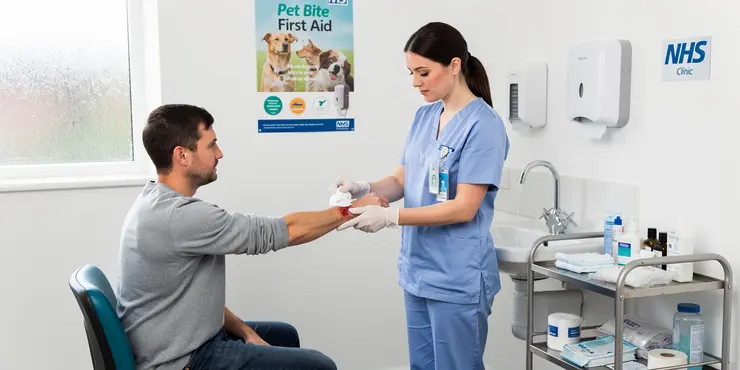
Find Help
More Items From Ergsy search
-
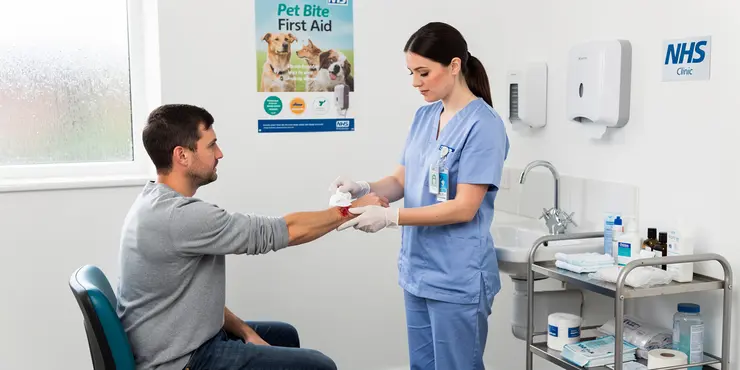
How to treat a cat bite
Relevance: 100%
-

Are mosquito bites in the UK harmful?
Relevance: 43%
-

Do all mosquitoes bite humans?
Relevance: 42%
-

Why are mosquito bites itchy?
Relevance: 42%
-

Self care - insect bites
Relevance: 41%
-
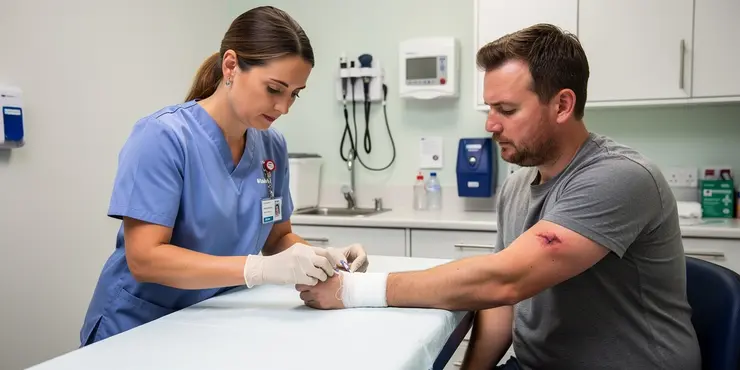
How to treat a dog bite
Relevance: 41%
-

How can I treat mosquito bites?
Relevance: 40%
-

Which spiders in the UK can bite humans?
Relevance: 40%
-
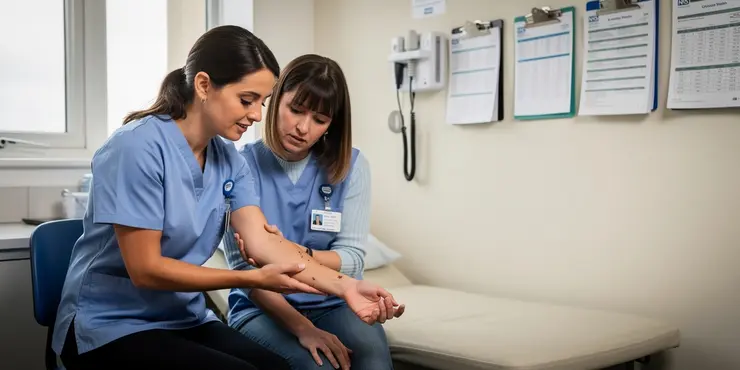
Think Pharmacy: Introduction for Bites and Stings
Relevance: 39%
-
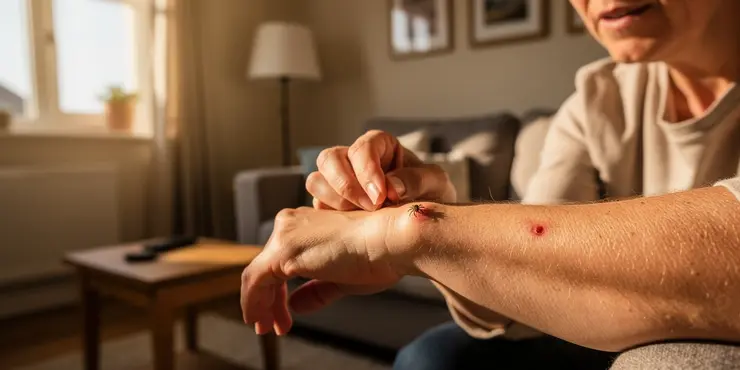
Tick Bites: Should you be worried?
Relevance: 39%
-
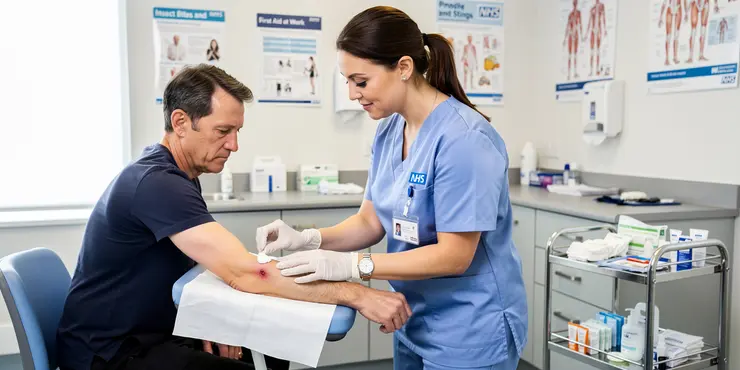
How to treat an insect bite or sting | NHS
Relevance: 38%
-

Is the bite from a false widow spider dangerous?
Relevance: 38%
-

How can I tell if bites are from bed bugs?
Relevance: 37%
-

Can HIV be transmitted through insect bites?
Relevance: 37%
-

How can I protect myself from mosquito bites in the UK?
Relevance: 35%
-
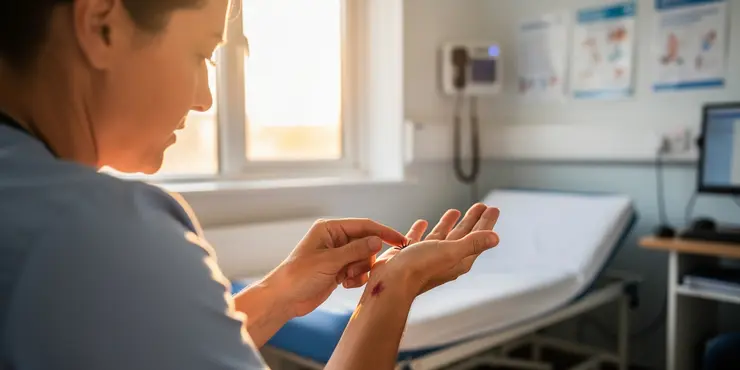
How common are spider bites in the UK?
Relevance: 32%
-
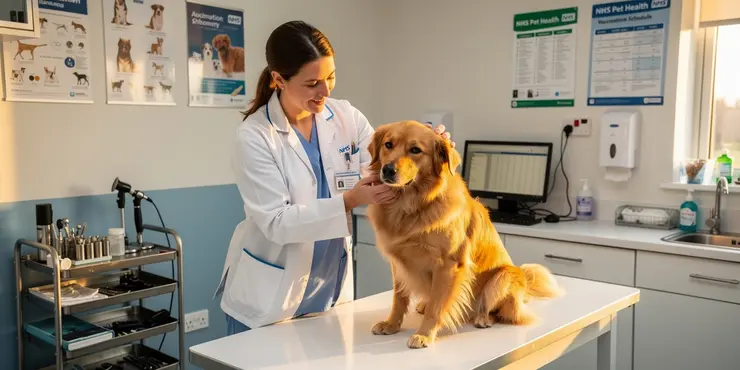
Can pets get West Nile Virus?
Relevance: 31%
-
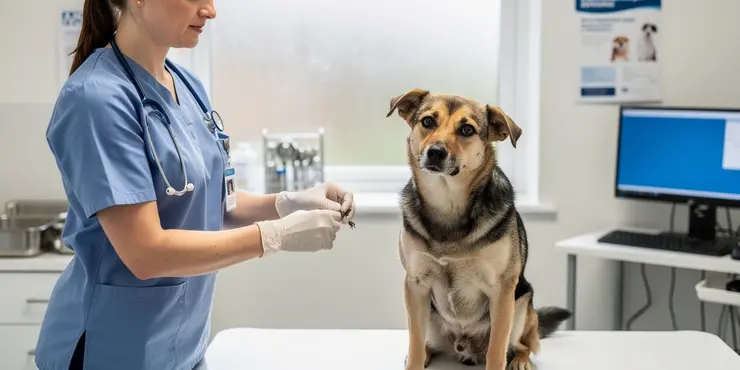
Can pets get Lyme disease?
Relevance: 29%
-

Can pets damage mosquito screens?
Relevance: 28%
-
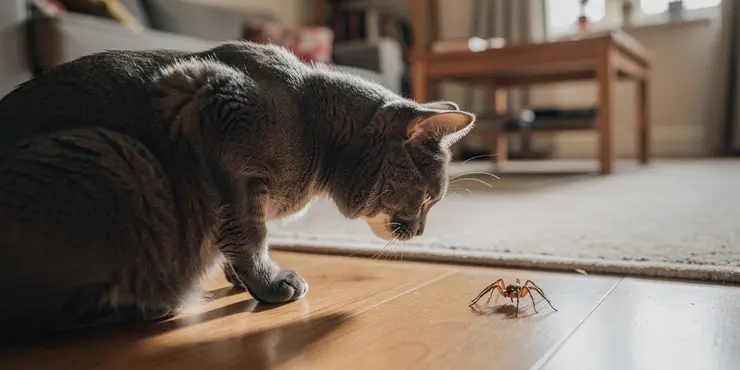
Do UK spiders pose a threat to pets?
Relevance: 27%
-

How is the bubonic plague transmitted?
Relevance: 20%
-

What should I do if I get bitten by a spider in the UK?
Relevance: 20%
-

Can UK spiders cause allergic reactions?
Relevance: 18%
-

Are UK spiders venomous?
Relevance: 18%
-

Do spiders in the UK carry diseases?
Relevance: 18%
-

Are there any poisonous spiders in the UK?
Relevance: 18%
-
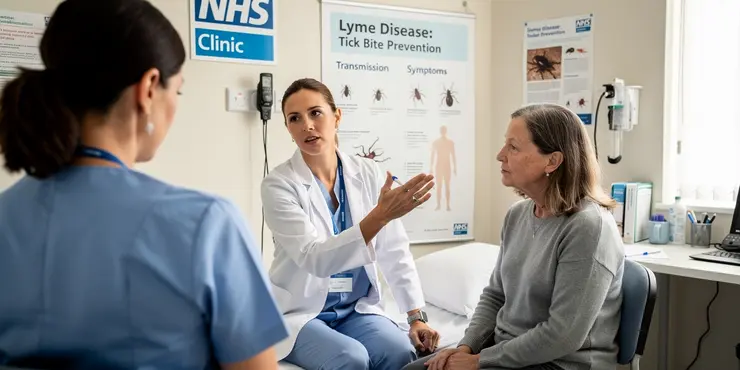
How is Lyme disease transmitted?
Relevance: 17%
-

Are there Mosquitos in the United Kingdom?
Relevance: 17%
-

Are there any special precautions for pets during a heatwave?
Relevance: 17%
-
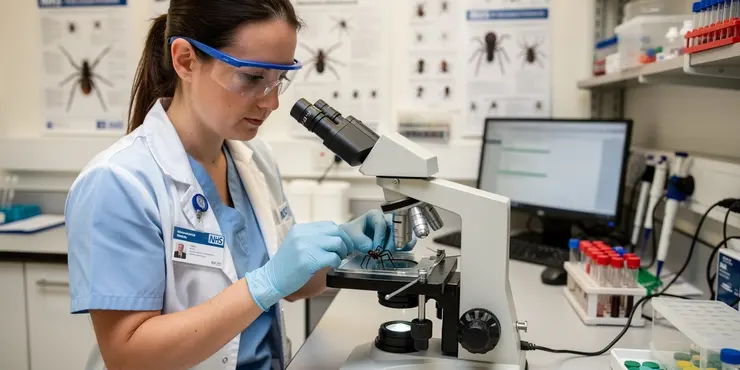
What is the most dangerous spider in the UK?
Relevance: 17%
-

How is West Nile Virus transmitted?
Relevance: 16%
-
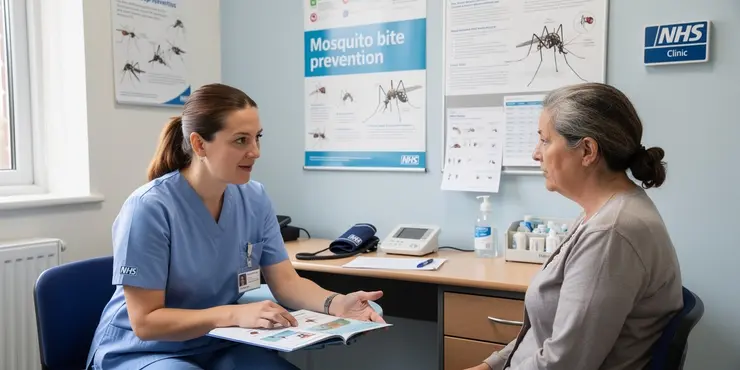
How is Chikungunya virus transmitted?
Relevance: 16%
-
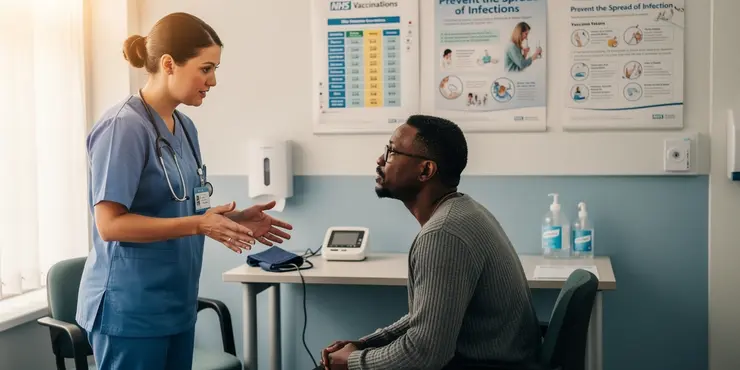
Can the bubonic plague be prevented?
Relevance: 16%
-
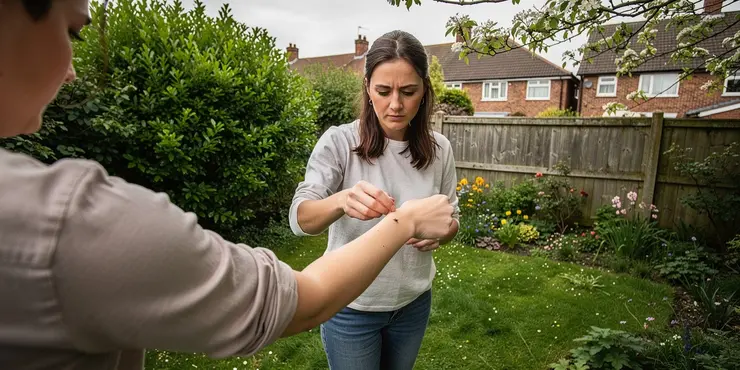
What should you do if you find a tick on your body?
Relevance: 16%
-

What are the signs of a bed bug infestation?
Relevance: 15%
-

What is the first sign of Lyme disease?
Relevance: 15%
-

Are there non-venomous spiders in the UK?
Relevance: 15%
-

When are mosquitoes most active in the UK?
Relevance: 15%
-

Is Lyme disease contagious between humans?
Relevance: 15%
-

Are bed bugs dangerous?
Relevance: 15%
How to Treat a Cat Bite
Cat bites can be more serious than they initially appear due to the thin, sharp teeth of felines, which can puncture the skin deeply and introduce bacteria into the tissues. If you've been bitten by a cat, it's important to take immediate action to reduce the risk of infection and other complications. This guide will help you understand how to properly treat a cat bite at home and when to seek medical assistance in the United Kingdom.
Immediate First Aid Steps
The first step after being bitten by a cat is to wash the wound thoroughly. Use soap and water to rinse the bite area for at least five minutes to remove bacteria and dirt. If the wound is bleeding, allow it to bleed for a short while, as this can help flush out bacteria. Next, apply an antiseptic solution like iodine or an alcohol-based disinfectant to the area to prevent infection.
Apply a Clean Dressing
After disinfecting the wound, gently pat it dry with a sterile cloth or bandage. Apply a clean dressing or plaster to protect the wound from further contamination. Change this dressing at least once a day or whenever it becomes wet or dirty, ensuring the wound remains clean and dry to promote healing.
Monitoring for Signs of Infection
Keep a close eye on the wound for signs of infection. Symptoms to watch for include increased redness, swelling, warmth, pus discharge, and severe pain around the area. If any of these symptoms occur, or if you develop a fever, it's crucial to seek medical advice promptly.
Seek Medical Attention
In the UK, if you suspect the cat bite might have penetrated deeply or if signs of infection appear, contact your General Practitioner (GP) or visit an emergency department. You may be prescribed a course of antibiotics to prevent or treat an infection. Additionally, if your tetanus vaccination is not up-to-date, a booster injection might be necessary.
Prevention of Future Bites
Prevent future cat bites by understanding cat body language and respecting their boundaries. Avoid sudden movements around unfamiliar cats and give pets space when they are agitated. Ensure that your pets are properly socialized to reduce the risk of aggressive behaviour.
Conclusion
Treating a cat bite promptly and effectively is essential to prevent complications. By cleaning the wound, applying a sterile dressing, monitoring for infection, and seeking medical advice when necessary, you can reduce the risk of serious health issues. Awareness and preventative measures can help protect against future incidents.
How to Treat a Cat Bite
Cat bites can be more dangerous than they look. Cats have sharp teeth that can go deep into the skin and bring in germs. If a cat bites you, act quickly to stop getting sick. This guide will show you how to care for a cat bite at home and when to see a doctor in the UK.
Immediate First Aid Steps
If a cat bites you, wash the bite right away. Use soap and water to clean it for at least five minutes. This helps get rid of germs and dirt. If the bite is bleeding, let it bleed a little to clean out the germs. Then, use something like iodine or alcohol to clean it more and stop germs from growing.
Apply a Clean Dressing
After cleaning the bite, dry it gently with a clean cloth. Put a clean bandage or plaster on it to keep it safe from more dirt. Change the bandage at least once each day or when it gets wet or dirty. This helps the bite heal.
Monitoring for Signs of Infection
Watch the bite closely for signs of getting sick. Look for more redness, swelling, warmth, pus, or pain. If you see any of these, or if you get a fever, see a doctor right away.
Seek Medical Attention
In the UK, if the cat bite is deep or you think it’s infected, call your doctor or go to a hospital. The doctor might give you medicine to fight germs. If you haven't had a tetanus shot in a while, you might need one.
Prevention of Future Bites
To stop future bites, learn how cats show their feelings. Give cats space and don’t move suddenly near them, especially if they seem upset. Make sure pets are trained well to lower the chance of them biting.
Conclusion
Taking care of a cat bite quickly is key to staying healthy. Clean the bite, put on a clean bandage, watch for problems, and see a doctor if needed. Knowing how to stop bites and taking care can help avoid problems later.
Frequently Asked Questions
What should I do immediately after being bitten by a cat?
Wash the wound immediately with soap and water under running water for several minutes to reduce the risk of infection.
Do I need to see a doctor after a cat bite?
Yes, it's important to consult a doctor as cat bites can lead to serious infections. Seek medical advice even if the bite seems minor.
How should I clean a cat bite wound?
Use mild soap and water to clean the wound, then apply an antiseptic to the area if available.
How can I tell if a cat bite is infected?
Signs of infection include redness, swelling, warmth around the bite, pus, and increasing pain. Fever and swollen lymph nodes can also be symptoms.
When should I get a tetanus shot after a cat bite?
If your tetanus vaccinations are not up to date, or if it has been more than five years since your last booster, consult your GP for advice on a tetanus shot.
Is there a risk of rabies from a cat bite in the UK?
The risk of rabies is extremely low in the UK as the country is rabies-free. However, consult a doctor if there are concerns, especially if the cat has traveled to or is from a rabies-risk area.
What antibiotics might be prescribed for a cat bite?
Doctors commonly prescribe antibiotics like amoxicillin with clavulanate to prevent or treat infection from a cat bite.
How long does it take for a cat bite to heal?
Healing time can vary depending on the severity of the bite and if it becomes infected. Generally, it may take a few days to a couple of weeks for a minor bite if treated properly.
Should I cover a cat bite wound with a bandage?
After cleaning the wound, you can cover it with a sterile dressing or bandage to protect it, but ensure it is not too tight.
What are the risks associated with a cat bite?
The primary risk is infection due to bacteria in the cat's mouth, including Pasteurella and, in some cases, more serious infections if the wound is deep.
Can I use over-the-counter pain relief for a cat bite?
Yes, over-the-counter pain relief such as paracetamol or ibuprofen can help manage the pain, but always follow dosing guidelines.
Should I keep a record of the cat that bit me?
Yes, if possible, note any identifying features and observe the cat's behavior as this information may assist healthcare professionals.
What should I do if my cat bites someone else?
Advise the person to clean the wound and seek medical attention. Monitor your cat's behavior and ensure its vaccinations are up to date.
What if the cat bite causes a loss of mobility in my finger or hand?
Seek immediate medical attention, as this could indicate a serious injury or infection affecting deeper tissues or tendons.
Can a cat bite leave a permanent scar?
Yes, deep or infected cat bites can potentially leave scars. Proper care and timely medical treatment can help minimize scarring.
What to do right after a cat bites you?
Wash the cut right away. Use soap and water. Let the water run over it for a few minutes. This helps stop germs from getting in.
Should I see a doctor if a cat bites me?
If a cat bites you, it's a good idea to see a doctor. Cat bites can cause infections. Doctors can help clean the bite and give medicine if needed.
Tools like pictures or talking apps can help you understand more about cat bites. Don't worry, doctors are there to help you feel better.
Yes, you should talk to a doctor. Cat bites can cause bad infections. Even if the bite looks small, it is important to get advice from a doctor.
How do I clean a cat bite?
If a cat bites you, follow these steps:
- Wash the bite with soap and water.
- Pat the bite dry with a clean towel.
- Put some antiseptic cream on the bite.
- Cover the bite with a bandage.
If the bite is deep or swollen, talk to a doctor.
You can use a timer to help you wash the bite for at least 5 minutes.
Use gentle soap and water to clean the cut. If you have it, put some germ-killing liquid on the cut to keep it clean.
How to know if a cat bite has germs?
Infection signs are changes you can see or feel. Check for redness, swelling, and warmth around the bite. Pus and more pain can also be signs. You might also have a fever or feel lumps in your neck or armpits, called swollen lymph nodes.
When should I get a tetanus shot after a cat bite?
If a cat bites you, you might need a tetanus shot. Tetanus is a sickness you can get if bacteria from the bite goes into your body. It's important to stay safe and healthy.
Here is what you can do:
- If it has been more than 5 years since your last tetanus shot, you might need one now. Ask a doctor to help you decide.
- If you don't remember when you last got a tetanus shot, it's good to ask a doctor.
Tools to help you:
- Ask a family member or friend to go with you to the doctor.
- Write down any questions you have before you visit the doctor.
If you have not had a tetanus jab recently, or if it has been more than five years since your last one, talk to your doctor. They can tell you if you need another jab.
Can a cat bite give you rabies in the UK?
If a cat bites you, can you get sick with rabies in the UK? Rabies is a disease that affects the brain. It is very serious and can make you very ill.
In the UK, rabies is very rare. Cats in the UK usually do not have rabies, so it's not likely you will get it from a cat bite. But, if you are bitten or scratched by a cat, you should:
- Wash the bite or scratch with soap and water.
- Put a clean bandage on it.
- See a doctor to make sure you are okay.
If you have a hard time understanding things, ask someone you trust for help. You can also use tools like simple language guides or picture stories to understand better.
The chance of getting rabies in the UK is very low. This is because the UK does not have rabies. But, if you are worried, you should talk to a doctor. This is especially important if the cat has been to or is from a place where there is rabies.
What Medicine Do You Take for a Cat Bite?
If a cat bites you, you might need medicine to help you heal.
This medicine is called antibiotics. It helps stop bad germs from making you sick.
You can:
- Visit a doctor to get the right medicine.
- Ask an adult to help you understand what the doctor says.
Remember, always tell an adult if a cat bites you!
Doctors often give medicine called antibiotics to stop or treat an infection from a cat bite.
How long does it take for a cat bite to get better?
If a cat bites you, the bite might get better in a few days. But sometimes, it can take longer. Make sure to clean the bite with water and soap.
If the bite hurts a lot or gets red and swollen, show it to a doctor. They can help you feel better.
How long it takes to heal depends on how bad the bite is and if it gets infected. A small bite can heal in a few days to a few weeks if you take care of it properly.
Should I put a bandage on a cat bite?
If a cat bites you, clean the bite well. Use soap and water.
After cleaning, let the bite dry in the air.
If the bite is bleeding a lot, press with a clean cloth.
You can use a bandage if the bite is open.
Watch for signs of infection like redness or swelling. Tell an adult.
If you are worried, see a doctor.
After you clean the cut, put a clean bandage on it to keep it safe. Make sure the bandage is not too tight.
What dangers come from a cat bite?
If a cat bites you, it can be dangerous.
Here is why cat bites can be bad:
- Cats have sharp teeth that can break your skin.
- Bacteria from a cat's mouth can get into your body and make you sick.
- The bite might cause an infection.
- Your skin could get red, swollen, and hurt.
If a cat bites you, here’s what you can do:
- Wash the bite with soap and water right away.
- See a doctor if the bite is deep or if it gets worse.
Helpful tip: Get help from an adult if a cat bites you.
The main risk is getting an infection. This can happen because of germs in the cat's mouth. These germs are called Pasteurella. If the scratch or bite is deep, the infection can be worse.
Can I use store-bought medicine for pain from a cat bite?
Yes, you can take medicine like paracetamol or ibuprofen for pain. You can buy these from a shop without a prescription.
Always follow the instructions on how much to take.
If you need help, ask someone to read the instructions with you or use a tool like a magnifying glass to see the text better.
Do I need to write down the details about the cat that bit me?
Yes, try to notice what the cat looks like. Also, watch how the cat acts. This information can help doctors and nurses.
What to do if your cat bites someone?
If your cat bites someone, follow these steps: 1. **Stay Calm**: Try not to panic. 2. **Say Sorry**: Apologize to the person who got bitten. 3. **Check the Bite**: Look at the bite to see if it is a big or small wound. 4. **Get Help If Needed**: If the bite looks bad, the person should see a doctor. 5. **Clean the Wound**: If the bite is small, wash it with soap and water. 6. **Talk to a Vet**: Let your vet know about the bite. 7. **Keep Your Cat Calm**: Ensure your cat is relaxed and not scared. Tools and Techniques: - Use a calm voice when talking. - Write down what happened to help explain to a vet later.Tell the person to clean the cut. Tell them to go to the doctor. Watch your cat and make sure it has all its shots.
What if I can't move my finger or hand after the cat bite?
If a cat bites you and you can't move your finger or hand, tell an adult right away.
They will take you to a doctor.
It's important to see a doctor to get help for your hand or finger.
If it's hard to understand or remember, ask someone you trust to help you.
Go to the doctor right away. This might mean you have a bad injury or an infection inside your body.
Can a cat bite leave a scar forever?
Yes, cat bites that are deep or get infected can leave scars. Getting help quickly from a doctor and taking care of the bite can help stop scarring.
Useful Links
This website offers general information and is not a substitute for professional advice.
Always seek guidance from qualified professionals.
If you have any medical concerns or need urgent help, contact a healthcare professional or emergency services immediately.
Some of this content was generated with AI assistance. We’ve done our best to keep it accurate, helpful, and human-friendly.
- Ergsy carfully checks the information in the videos we provide here.
- Videos shown by Youtube after a video has completed, have NOT been reviewed by ERGSY.
- To view, click the arrow in centre of video.
- Most of the videos you find here will have subtitles and/or closed captions available.
- You may need to turn these on, and choose your preferred language.
- Go to the video you'd like to watch.
- If closed captions (CC) are available, settings will be visible on the bottom right of the video player.
- To turn on Captions, click settings .
- To turn off Captions, click settings again.
More Items From Ergsy search
-

How to treat a cat bite
Relevance: 100%
-

Are mosquito bites in the UK harmful?
Relevance: 43%
-

Do all mosquitoes bite humans?
Relevance: 42%
-

Why are mosquito bites itchy?
Relevance: 42%
-

Self care - insect bites
Relevance: 41%
-

How to treat a dog bite
Relevance: 41%
-

How can I treat mosquito bites?
Relevance: 40%
-

Which spiders in the UK can bite humans?
Relevance: 40%
-

Think Pharmacy: Introduction for Bites and Stings
Relevance: 39%
-

Tick Bites: Should you be worried?
Relevance: 39%
-

How to treat an insect bite or sting | NHS
Relevance: 38%
-

Is the bite from a false widow spider dangerous?
Relevance: 38%
-

How can I tell if bites are from bed bugs?
Relevance: 37%
-

Can HIV be transmitted through insect bites?
Relevance: 37%
-

How can I protect myself from mosquito bites in the UK?
Relevance: 35%
-

How common are spider bites in the UK?
Relevance: 32%
-

Can pets get West Nile Virus?
Relevance: 31%
-

Can pets get Lyme disease?
Relevance: 29%
-

Can pets damage mosquito screens?
Relevance: 28%
-

Do UK spiders pose a threat to pets?
Relevance: 27%
-

How is the bubonic plague transmitted?
Relevance: 20%
-

What should I do if I get bitten by a spider in the UK?
Relevance: 20%
-

Can UK spiders cause allergic reactions?
Relevance: 18%
-

Are UK spiders venomous?
Relevance: 18%
-

Do spiders in the UK carry diseases?
Relevance: 18%
-

Are there any poisonous spiders in the UK?
Relevance: 18%
-

How is Lyme disease transmitted?
Relevance: 17%
-

Are there Mosquitos in the United Kingdom?
Relevance: 17%
-

Are there any special precautions for pets during a heatwave?
Relevance: 17%
-

What is the most dangerous spider in the UK?
Relevance: 17%
-

How is West Nile Virus transmitted?
Relevance: 16%
-

How is Chikungunya virus transmitted?
Relevance: 16%
-

Can the bubonic plague be prevented?
Relevance: 16%
-

What should you do if you find a tick on your body?
Relevance: 16%
-

What are the signs of a bed bug infestation?
Relevance: 15%
-

What is the first sign of Lyme disease?
Relevance: 15%
-

Are there non-venomous spiders in the UK?
Relevance: 15%
-

When are mosquitoes most active in the UK?
Relevance: 15%
-

Is Lyme disease contagious between humans?
Relevance: 15%
-

Are bed bugs dangerous?
Relevance: 15%


